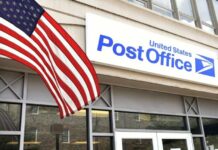Eggs and bacon. Eggs and pancakes. Eggs and toast.
Americans have made eggs a part of our everyday lives, especially at the breakfast table. Thousands of baking recipes call for eggs as the star of the dish. Other meals are not excluded from giving eggs this powerful role.
With eggs reaching as high as $8 a dozen for generic eggs in parts of the country (triple pre-pandemic), enough is enough for many Americans. They just cannot afford to pay that much for something they can usually do without. But what about recipes that necessitate eggs to complete, or just want them for health reasons?
Science has you covered. The timing for over-inflated egg prices and egg shortages across the nation has given science the perfect opportunity to take the spotlight and showcase alternatives for eggs. While some are nothing more than modified eggs, other solutions are a stroke of pure genius!!
One of the most unique options has been freeze-dried eggs. Sold by smaller manufacturers, these eggs tend to be pricier at $20 a dozen, but they keep forever in their sealed mylar pouches. This means less waste from unused eggs and a cheaper option for things like camping trips. Blending perfectly for that amazing omelet or to use in a cake, these specialty eggs are a perfect alternative.
As most of the farms that make free dried eggs are also smaller market farms, that means these eggs are coming from humanely raised chickens, who don’t have to be vaccinated or fed cheaper feed. For you and your family that means healthier eggs with fewer concerns about things like cholesterol. Being able to avoid those risks has been a huge challenge for many with dietary issues, but healthier chickens produce healthier eggs.
Another option has become mung beans. While soy or bean-based liquids have been to go-to answer for many, the innovation of using mung beans as an egg substitute has proven to be a great seller. People across the country are shocked to try them for their scrambled eggs, but the proof is in the taste, and these hit a home run.
Curious about how to make a mung bean omelet? Check this out:
Given the changes in real egg prices, alternates like these are flying off the shelves. The innovators behind these alternates are providing people with something cheaper than the real thing for the first time in history. Between dropping prices and a lack of availability, their success was written clearly on the wall.
In consumer taste testing, many could not differentiate between substitutes and real eggs. A previous test just five years ago was not showing this trend to be the truth, so manufacturers have been listening with much more intent to give the people what they want on their tables. It’s rare to have a company care so deeply about the consumer’s wants, but in this fickle and small industry, it must be right.
For those who still don’t want to use these substitutes or are in a pinch because they are baking something, the age-old tricks of applesauce, mashed banana, or water, oil & baking powder are still going great. While these substitutions are only for baking, some have tried them in their cooking recipes to create whole new takes on classic dishes.
Given the current avian flu pandemic that is decimating large egg producers, these prices are not likely to retreat any time soon. Many economists are forecasting $10 a dozen by the end of the year as something that is not outside the realm of possibility. That means less time to master and learn how to use the alternates properly, so if you have some time to experiment, try out some of these alternatives!



















